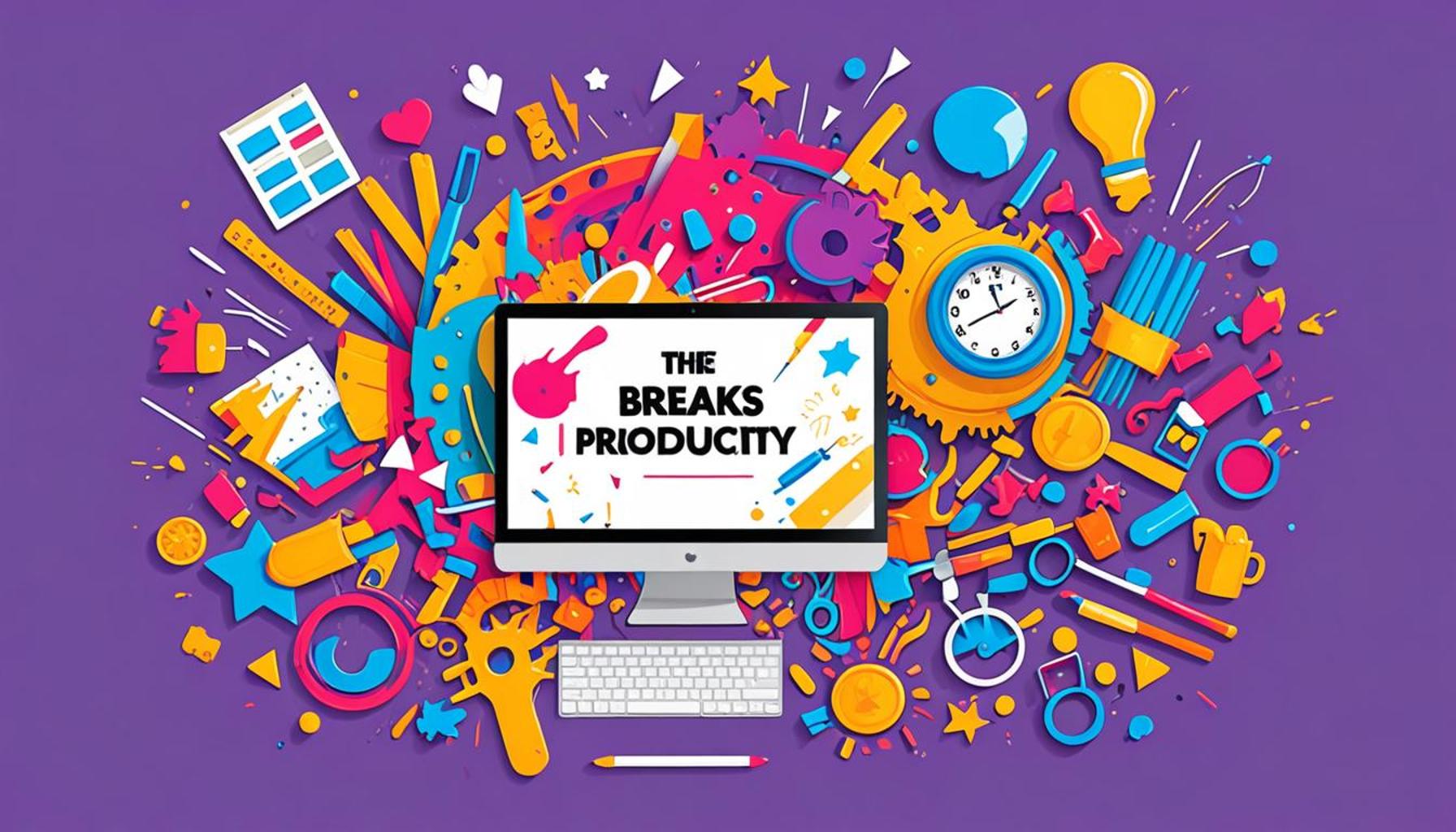Audit Your Daily Schedule Identify and Cut Wasted Time Effectively

Discovering the Culprits of Time Mismanagement
In an era dominated by fast-paced living and numerous responsibilities, it’s common for individuals to feel as though they’re racing against the clock. The challenge many face is not just in the number of hours available but in how those hours are utilized. Time mismanagement often roots itself in mundane daily activities that, on the surface, appear harmless but ultimately siphon away valuable minutes. To regain control, it’s essential to conduct a thorough audit of your daily routine.
Social Media Scrolling: Consider the average person’s daily engagement with platforms like Instagram, TikTok, or Facebook. A mere five minutes may easily morph into an hour of mindless scrolling. Research by the Pew Research Center shows that Americans spend an average of 2 hours and 31 minutes each day on social media. This may appear innocuous, but when compounded over a week, that time investment could be redirected toward pursuing hobbies, building skills, or fostering relationships. Thus, it is crucial to monitor this activity and set limits to maintain a healthier balance.
Unproductive Meetings: Another common time sink is the prevalence of inefficient meetings. According to research from Harvard Business Review, around 71% of senior managers think meetings are unproductive and inefficient. Often, these gatherings lack defined objectives, leaving attendees confused and disengaged. By setting clear agendas and time limits for discussions, organizations can significantly enhance meeting efficiency, granting everyone more time to focus on substantive tasks.
Task Overload: Many individuals fall prey to the assumption that taking on more responsibilities equates to increased productivity. However, overwhelming your schedule can lead to diminished quality of work and increased stress levels. The Pareto Principle, often referred to as the 80/20 rule, teaches that 80% of results come from 20% of efforts. By identifying your top priorities and setting realistic expectations, you can concentrate your energy on what truly counts.
To combat these time traps and enhance your daily regimen, consider implementing these strategies:

- Streamlining Tasks: Begin each day by organizing a to-do list, focusing on high-impact activities. Tools like the Eisenhower Box can help separate urgent tasks from important ones, ensuring you’re working smarter, not harder.
- Setting Time Limits: Allocate specific times to tackle each task, a method known as time blocking. This allows you to approach each task with enhanced focus, reducing the temptation to drift into distractions.
- Regular Breaks: Research suggests that incorporating brief breaks every 25-30 minutes can improve concentration and encourage creative thinking. Techniques such as the Pomodoro Technique can help in maintaining energy levels while also preventing burnout.
As you embark on this endeavor to examine your time management, it’s likely that you will uncover unexpected trends and habits. With thoughtful adjustments to your routine, the potential for increased productivity becomes boundless. The journey toward a more efficient and gratifying daily rhythm awaits!
CHECK OUT: Click here to explore more
Effective Strategies for Identifying Wasted Time
A daily schedule audit serves as an eye-opener, and knowing where to focus your scrutiny is paramount. Start by observing the flow of your day, taking note of everything you do. Before plunging into a strategy, consider tracking your time for a week. Various apps, such as Toggl or RescueTime, can help you create a detailed picture of how your hours are spent. You’ll likely uncover patterns that reveal significant time drains, which may have gone unnoticed. Understanding these patterns sets the groundwork for productive change.
Distractions in the Workplace: In today’s work environment, distractions are more prevalent than ever. Studies indicate that employees lose, on average, about 2.1 hours each day to *distractions*. This can range from chatty coworkers to sudden email alerts, all of which contribute to fragmented focus. Tackling interruptions head-on requires both an understanding of their origins and actionable solutions. For instance, creating a designated quiet workspace or establishing “do not disturb” hours can foster a more focused atmosphere, ultimately boosting productivity levels.
Overcommitting: It’s easy to overschedule ourselves, often saying yes to every meeting and social obligation that comes our way. A survey from the *American Psychological Association* reveals that nearly 60% of Americans admit they regularly feel overwhelmed by their obligations. This tendency can lead to a schedule that feels as constraining as a vice, making it crucial to learn the art of saying no. Prioritize commitments that align with your professional and personal goals, and don’t hesitate to delegate when necessary. Freeing yourself from non-essential tasks allows for deeper focus on what truly matters.
- Utilizing Technology Wisely: Embrace tools designed to enhance productivity rather than hinder it. Apps like Todoist or Trello provide effective planning capabilities that can help streamline your workload and keep you on track. Use reminders and notifications to prioritize tasks while avoiding unnecessary screen time that offers little to no return.
- Batching Similar Tasks: This technique involves grouping similar tasks together, thereby reducing the cognitive load associated with task-switching. For example, allocate specific times in your day for replying to emails or making phone calls, rather than scattering these tasks throughout your day. This not only saves time but also increases efficiency.
By implementing these actionable strategies, you will be equipped to unveil the hidden time suckers in your life. That precious time, when reclaimed, can lead you toward achieving long-term aspirations and goals. With a clearer understanding of how your moments are spent, you can refine your approach and improve overall satisfaction in both personal and professional realms.
| Advantages | Key Insights |
|---|---|
| Increased Productivity | By auditing your daily schedule, you can identify time drains and focus on high-value tasks that contribute meaningfully to your goals. |
| Better Time Management | Effective auditing helps to create a realistic timeline, allowing you to allocate time more efficiently and meet important deadlines with ease. |
| Stress Reduction | Understanding where your time goes can reduce frustration and mental clutter, leading to a more balanced work-life dynamic. |
| Enhanced Goal Achievement | When you cut wasted time, you can set aside more hours for personal development and career ambitions, propelling you closer to your long-term objectives. |
The process of auditing your daily schedule serves not only to highlight areas of improvement but also to equip you with the tools necessary for sustainable success. By making informed adjustments, individuals are empowered to regain control over their time, paving the way for a more productive and fulfilling life. Embracing this exercise requires a commitment to honesty regarding how time is currently spent, as well as a willingness to make the necessary adjustments. For those eager to explore the methods and strategies to audit their daily schedules effectively, diving deeper into the specifics can reveal transformative insights that extend beyond time management to overall well-being and satisfaction in various aspects of life.
CHECK OUT: Click here to explore more
Transforming Your Schedule with Intentional Choices
Once you’ve identified where wasted time occurs, the next step is to actively transform your daily schedule by making intentional choices. This phase requires a commitment not only to implementing changes but also to maintaining a mindset focused on productivity and efficiency. Below are several methods you can employ to effectively cut out wasted time and use your hours more wisely.
Embrace Time Blocking: Time blocking is a powerful technique that helps structure your day by assigning specific time slots for various activities. Research from the *Harvard Business Review* reveals that professionals who utilize time-blocking report higher productivity levels, as it reduces the uncertainty about when and how to tackle tasks. For example, you might allocate mornings solely for deep work, reserving afternoons for meetings and administrative duties. Crafting a schedule with designated blocks ensures a balanced approach while minimizing the chaos that often leads to wasted time.
Regular Breaks Are Essential: Surprisingly, taking regular breaks can significantly enhance your productivity. According to a study published in the *Journal of Occupational Health Psychology*, taking short breaks improves focus and retention. This counterintuitive approach prevents burnout and overstimulation, which can lead to inefficiency. Implement methods such as the Pomodoro Technique, which encourages 25 minutes of focused work followed by a 5-minute break. These intervals create a rhythm that preserves energy and enhances overall output.
Prioritize Tasks Using the Eisenhower Matrix: One of the most effective ways to prioritize your workload is by employing the Eisenhower Matrix, a decision-making tool used by notable leaders including President Dwight D. Eisenhower himself. This matrix divides tasks into four quadrants: urgent and important, important but not urgent, urgent but not important, and neither urgent nor important. By categorizing tasks accordingly, you can quickly identify which activities demand immediate attention, and which can be delegated or eliminated. This not only frees up time but also aligns your focus with genuine priorities.
- Limit Social Media Usage: In the digital age, social media can easily become a vortex of wasted time. A survey from *Pew Research Center* indicates that Americans spend an average of 2 hours and 31 minutes daily on social platforms. Setting usage limits or designating “social media-free” zones can minimize distractions and foster a more focused work environment.
- Create a ‘Done’ List: Instead of fixating solely on your to-do list, consider keeping a ‘done’ list. This captures all tasks completed within the day, providing motivation and a sense of accomplishment. Regularly reviewing this list reinforces positive habits and encourages efficiency, helping you stay accountable for your time.
As you integrate these strategies into your daily life, remember that the goal isn’t merely to fill your schedule with busyness, but to cultivate a well-balanced, intentional approach to productivity. By actively managing your commitments and fostering a focused environment, you empower yourself to reclaim precious time wasted on non-essential activities. Your rejuvenated focus can lead to a more fulfilling, accomplished life, both personally and professionally.
SEE ALSO: Click here to read another article
Conclusion: Maximize Your Time for Greater Success
In today’s fast-paced world, the ability to audit your daily schedule and identify areas of wasted time is not just a luxury; it’s a necessity for achieving success. Through a concerted effort to cut wasted time effectively, you can reclaim hours that could be better spent on meaningful tasks and personal well-being. By implementing strategies such as time blocking, taking regular breaks, and utilizing tools like the Eisenhower Matrix, you can navigate your day with greater clarity and purpose.
Moreover, as demonstrated by compelling studies, factors such as managing social media usage and creating a ‘done’ list can significantly enhance productivity and motivation. These methods not only streamline your workflow but also cultivate a focused mindset that fosters efficiency, dispelling the chaos that often plagues our schedules. As you embark on this transformative journey, remind yourself that the goal is not merely to stay busy, but to engage in intentional activities that align with your priorities.
In conclusion, your daily schedule is a reflection of your values and commitments. By taking the time to audit and refine it, you are investing in a more fulfilling future. Embrace these strategies, and you will not only discover an abundance of time but will also enhance your overall quality of life. Take the first step today and unlock your potential to live a more productive, purposeful life.



